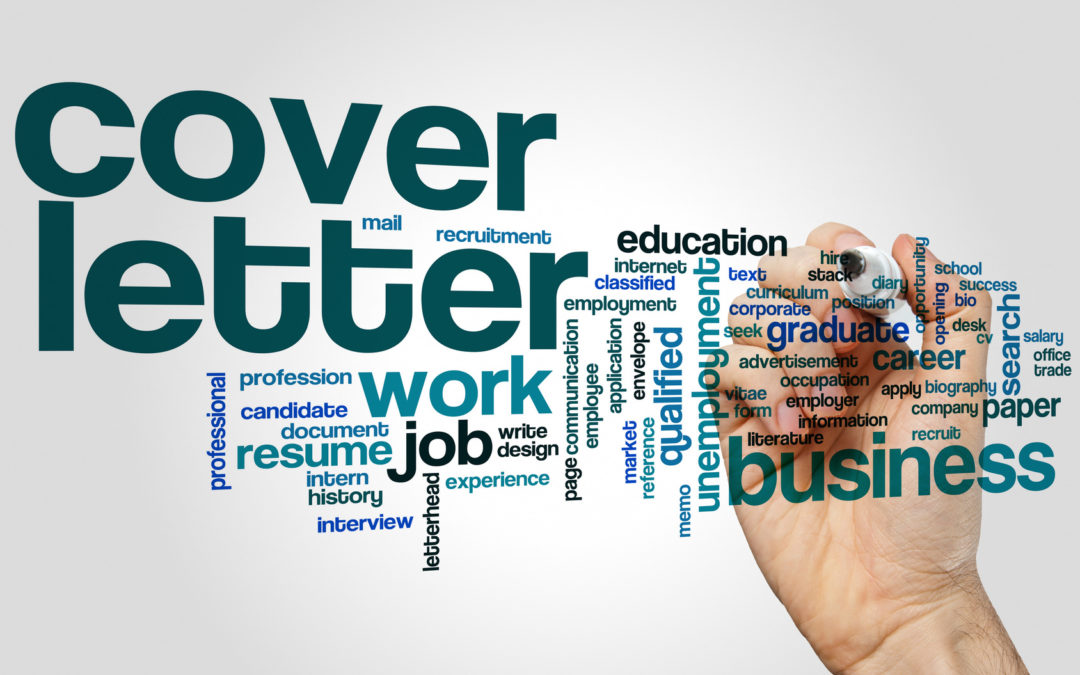
Aug 30, 2017 | Career Coaching
Perhaps you’re far ahead in your career field or just starting out. Maybe you’re looking for a total change in careers. Maybe you’re completely unsure of what you want to do professionally.
A great career coach can help. A career coach can help catapult an already successful career into astronomical advancement. Career coaching services can help those climbing the ranks achieve success at a faster rate.
Coaching can be beneficial for everyone. Having someone walk you through big career decisions and helping you sort through goals can have an invaluable effect on your journey. Simply having an outsider’s eyes and ears on your behalf can have a positive effect on you as a professional.
Choosing which career coach is best for you can be difficult. Here’s the ultimate guide to finding a great career coach:
1. Make It a Match
When browsing through potential coaches, find those with expertise in your desired area. Some coaches can focus on a variety of areas, but finding one with a specialty in your area of interest can make your time with them more valuable.
Make sure you find a coach with in-depth knowledge of your chosen field, and perhaps a vast network of resources. This can have many advantages, so be sure to ask your potential coaches what their specialty is.
Not only is their knowledge important, the chemistry with them is important as well. If it doesn’t seem like a fit, find someone who you would enjoy spending time with while making plans and goals for your career.
2. Identify the Ideal Career Coaching Service
Not all career coaching services are the same. With rapid changes in technology and the business world, coaches need to consistently update their credentials and practice.
It’s important to find a coach that is keeping up with changes. When interviewing coaches, ask them about their recent renewals or training.
3. Pick Up the Phone
Find coaches who offer free telephone consultations so you can get to know each other before you’re charged a full session fee. This works for both you and your coach, giving you both the opportunity to find out if the relationship is a fit.
Be completely honest in your telephone consultation by explaining what you want to accomplish through your coach and in your career.
Narrow down your selection and set up telephone consultations with a few select coaches. Talking with more than a few will complicate the process and make it more confusing.
4. Manage Yourself
While coaches are there to help steer you in the right direction, remember that it is ultimately up to you to make it happen. Coaching services can help you create goals, sift through job services, create a stellar resume and help you stay on track.
But remember, only you can offer the ambition and drive to make it happen. A coach can’t instill that in you.
Create a Winning Partnership!
By bringing your own drive and charisma to any career coaching service, you can create an unstoppable team. Consider their knowledge, specialties, credentials, and chemistry when choosing the ultimate coach to guide you.
If you’re ready to take your resume and your career to the next level, contact us!

Aug 30, 2017 | Interview Coaching
If you’re seeking a new job in today’s competitive market, you should consider interview coaching.
A recent report by Jobvite found that on average, corporate job openings see a submission of more than 250 resumes. Out of those, only 4 to 6 candidates will be invited for an interview. That’s about 2%! Out of those, only one will get an offer.
Now that you know what it takes to get a job interview, the last thing you want to do is waste the opportunity by being unprepared.
In this article, we’re discussing how interview coaching works and what it does to put you ahead of the competition.
How Interview Coaching Works
Employment interview coaching can help you be your most prepared and confident, significantly increasing your chances of receiving employment offers.
Discussing your value while simultaneously presenting yourself as likable, easy to work with, and professional isn’t a skill that comes naturally to most of us.
It takes practice to hone your interviewing skills. That’s where an interview coach can help.
What does an interview coach do?
A great interview coach will help you determine the message you want to convey, strategically present yourself, and calm your nerves.
Additionally, interview coaches will assist you in crafting responses to both behavioral and common interview questions such as:
Tell me about yourself.
What are your strengths?
Why do you want to work for (this company)?
Why did you leave your last job?
What is your biggest weakness?
Being prepared for these tough questions with relevant answers will position you for success during the interview process. It’s like getting the answers to the test ahead of time, but without cheating!
Plus, an interview coach will help you avoid common interview mistakes, such as appearing insincere, looking disheveled, or giving off negative energy.
That’s not all. Your coach will also help you research targeted companies and positions.
It’s important that you’re well-prepared before going into your interview. Meaning, you should be aware of the company’s key products or services, its major competitors, and the position of the person interviewing you.
In many interviews, you’ll have an opportunity to ask one or more questions about the company. This is your chance to demonstrate that you’ve done your homework.
An interview coach will teach you how to use this opportunity to show that you are more interested in the goals of the company than other considerations, such as how much vacation time you’ll receive.
How much does coaching cost?
Coaching costs vary by company as well as by how many sessions you choose.
At Elite, we charge a competitive $175 for each hour-long session.
There is no magic formula to guarantee you’ll get hired, but you deserve to have the tools that will give you the best opportunity to win the job.
Now You Know!
If you’re tired of being passed over, and you’re ready to get the job want, contact Elite today for interview coaching.
We offer resume services, interview coaching, and career coaching so we’re happy to help you no matter what stage you’re in during your career search!

Aug 22, 2017 | Resume Writing Tips
You’ve just found a job posting that’s absolutely perfect for you. You have all the required experience and skills, the company looks great, and the salary is attractive.
Got your resume all polished up? Great! But before you apply, take time to learn how to write a cover letter that will catch the recruiter’s attention.
1. Get Off to a Good Start
It’s worth taking the time to research who’s going to read your cover letter, so that you can address it directly, but use caution. A female manager or HR director might not take kindly to a cover letter that starts out “Dear Sir” — or worse, “Dear Mr. Jones.”
If you don’t know the contact person’s gender, either use their full name or go with a gender-neutral greeting like “Dear Hiring Manager.” Otherwise, you risk having your application deleted before it has even been read.
2. Tell Them Why You Are the Perfect Fit
Your resume outlines the educational background and professional experience you would bring to the position, so don’t waste the recruiter’s time reiterating that information.
Instead, explain how your previous accomplishments will help you achieve the stated objectives of the position. Use statements like “With 5 years of experience as a sales professional, I will grow revenue for your company,” or “My interpersonal skills and ability to multitask make me an ideal candidate for the receptionist position.”
This means you should tailor the cover letter to each individual position you’re applying for. Recruiters can spot a form letter a mile away.
3. Mirror Their Language
Many larger companies now use software to screen applications before they’re even sent to actual recruiters.
To maximize your chances of getting through this first filter, check the job posting for keywords, and use those keywords in your cover letter (and resume). If one requirement is “supervisory experience,” or proficiency in “Final Cut Pro,” for example, make sure to mention those terms.
Other, broader keywords that may help include descriptors such as “self-starter,” “team player,” “enthusiastic,” or even “passionate.”
A good way to get an idea of the qualities a company values is to look at its mission statement or the About Us page.
4. Keep It Professional
If you’re wondering how to write a cover letter that’s attention-grabbing, you might be considering using emojis, images, or even GIFs. Don’t. Seriously, don’t do it.
Save these for your social media. A cover letter shouldn’t include anything except plain words.
Similarly, resist the temptation to write a “listicle”-style cover letter (“9 Reasons to Hire Me: Number 3 Will Astonish You”), one written in rhyming couplets, or a humorous explanation of how broke you are at this point in your job search.
Flaky approaches like this will help your cover letter stand out — but not in a good way.
5. Do Not Overdo It
You know how your eyes glaze over when you see a text-heavy article? Recruiters’ eyes do the same when they get a cover letter that’s full of dense paragraphs.
Remember that the cover letter, along with your resume, is meant to land you an interview — not substitute for one. So keep your cover short, sweet, and to the point.
If you’re qualified for the position, and you can convey that, you may get a chance to sell yourself in person.
Have Questions about How to Write a Winning Cover Letter?
Still unsure of how to write a cover letter that will land you that dream job? Do you need help making your resume pitch-perfect, contact us for help!

Aug 15, 2017 | Career Coaching
If you want to grow your career in this day and age, it’s no longer viable to simply write a beautiful resume and call it done.
You need to find ways to get your name out on social media and other digital avenues. You have to find other professionals and like-minded people.
LinkedIn is the perfect place to do this. It’s a great way to brand yourself to potential clients and employers alike. You can grow a portfolio of achievements and demonstrate your skills while staying connected with people who share similar passions.
However, make sure that you create a profile that entices others to look through it. You don’t want to send people away from your profile before they give you a chance. There are certain things you should avoid when developing your LinkedIn profile, and we’re here to help you learn about them.
Continue reading to find out more about it!
1. Bad Photos
Your photo is one of the very first things others will see when they view your profile. Fair or not, chances are they’ll pass judgment when they look at the photo. So make sure the photo they look at is a good one.
Don’t post selfies or a picture in poor quality. Don’t use other brands (or even other people). After all, people want to put a face with a name.
Use a photo that’s a high-quality headshot, and make sure you’re dressed professionally.
There’s a certain size requirement for profile photos, so make the most of it.
2. Poor Summary
Your LinkedIn profile is the best way to sell yourself to potential employers or clients. When they visit your page, they want to learn about you and the value you could offer. Don’t sell yourself short by leaving your personal summary blank or only half-filled.
Use this space to explain who you are and what you can do. Tell your viewers exactly why they should want to connect with you and start a conversation.
Be sure to use proper formatting and punctuation in order to present yourself as a person to be taken seriously.
3. Keyword Stuffing
It might seem like a good idea to gather up a bunch of popular keywords and use them in your LinkedIn profile. More is better, right?
Not really. You shouldn’t use any keywords on your profile that doesn’t represent you. If someone visits your profile for the wrong reason, they’ll ignore you. They also might let other people know to ignore you. Furthermore, it could be a downward spiral for your presence on LinkedIn.
If you do choose to use good keywords that pertain to your career and skills, try to use them sparingly.
4. Not Keeping Active
If you don’t update your profile to include things like your personal achievements or new skills, chances are your profile will be ignored. Or, it won’t display properly, causing others to pass you by because they think you’re no longer using LinkedIn.
Spend a little time each week updating your LinkedIn page.
5. Treating it Like Facebook
While it can appear similar to Facebook due to its social networking appeal, LinkedIn is meant to be a professional site used by professionals with business and career goals in mind. Keep this in mind when you’re posting or responding to a post.
It’s not a good idea to post selfies or small status updates. Also, there’s no point in having thousands of strangers in your network that you never talk to. Remember, LinkedIn is about building a network of like-minded professionals where you all can help each other grow and expand your business and/or careers.
So use it as such!
You’re on Your Way to the Perfect LinkedIn Profile!
LinkedIn is a powerful tool and because of that, there are more tips you could use to make the most of it. However, don’t make the mistakes we’ve outlined above! Avoid them and you’ll find that your LinkedIn profile will get more views and connections.
Have any questions or comments? Contact us!

Aug 8, 2017 | Interview Coaching
Congratulations! You’ve got a second interview!
It’s clear that they’re interested in what you have to offer. But they haven’t offered you the job yet so you need to ace the next interview.
Here’s what you need to do to be well-prepared for the meeting.
Know Who Will Be at the Second Interview
If, during the scheduling process, the employer doesn’t tell you who will be at the second interview, ask. It’s a fair and reasonable question and shows you’re taking the opportunity seriously.
Assess the Reason
There are three possible reasons for another interview:
- It’s part of their standard process. This is common for government or large companies where you might have only met an HR rep during the first round.
- They’re having a tough time deciding between you and other strong candidates. Often, a peer to the open position will attend this kind of follow-up interview.
- They like your skills and experience. Now they’re trying to picture how you would fit in with the company’s culture.
Review Your Notes from the First Interview
Ideally, you took notes during the first interview or immediately after. They can help you know if you made any common mistakes.
For answers you wish could have been stronger, find a natural way to raise the topic again. But only if you sense it’s a sticking point for them.
Note the type of questions they asked the first time. If they were mostly procedural or technical, expect the emphasis to be on behavioral or situational questions this time.
Second interviews are more detailed and rigorous. Be prepared to elaborate on answers you gave last time.
Anticipate Questions
This interview will likely cover a broader range of questions and issues.
Use the knowledge gained from the first interview and additional research to understand the unique, problematic, or sensitive aspects of the role. This is essential if they are hiring to replace someone they fired.
Think of what questions you would ask if you were in their shoes. Prepare clear and brief answers.
Know Why They Should Hire You
If they were certain you’re the right person for the job, they would have already hired you. (The sole exception is if a multi-interview process is standard.)
Your goal for the second interview is to leave them with no doubt that you can step into the role and be an asset from day one.
Practice ways of talking about your unique set of skills and/or experience. Discuss how you would bring immediate and long-term value to the team.
Decide What You Need to Know
Interviews go both ways. Be prepared to ask detailed questions to make sure they’re the employer for you.
Explore the company’s culture and team dynamics as well as workload. You should feel that you’re a fit as much as they do.
Be Ready for a Variety of Interactions
To help determine cultural fit, many hiring managers take candidates on a tour of the workplace. They might introduce you to key colleagues and stakeholders.
How would you greet potential workmates? After all, it will be their first impression of you. And you never know whose feedback about candidates the hiring manager might seek.
Be Prepared to Talk About Money
Total compensation is an important factor for you and them. Know what the role is worth and your salary expectations.
Be prepared to offer results-oriented evidence to support your expected salary.
The Basics Still Apply
Don’t get over confident and skip the basics. Remember to:
- Arrive ten minutes early
- Have copies of your resume and any supporting materials
- Dress for the job you want and to match the company culture
- Listen carefully to questions
- Keep answers brief but thorough
- Speak clearly and don’t ramble
- Be your best self
Need More Training for Your Second Interview?
Do you want additional guidance as you prepare for a successful second interview?
Contact us! We’d love to help you polish your interviewing skills and win the job!





